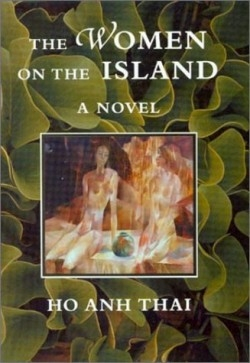The Women on the Island
Tens of thousands of Vietnamese women were involved in the dregs of the Vietnam War—burying the dead, defusing bombs, monitoring the Ho Chi Minh Trail—both in the North and the South. They suffered as much as the men, but were left with fewer laurels. With so many men dead or wounded, these women became part of a “lost generation,” deprived of their chances to marry or have children.
Originally published in Vietnamese in 1988, The Women on the Island is one of the first novels focusing on women after the war. Ho Anh Thai, born in 1960, is one of the most prolific writers in Vietnam today. His earliest childhood memories involve the American bombings, and the war and its repercussions figure largely in his writings.
A group of these veteran women form Production Brigade Five—“the women on the island.” Displacing them from their traditional family roles, the government sends them to the remote, overgrown island of Cat Bac, hoping they will develop it. There, hardened by the war, they languish, dreaming of bearing children.
The women’s story crosses with that of Hoa, a morally upright young entrepreneur, and Tuong, his ne’er-do-well protégé, easily swayed by emotion. Hoa’s business acumen and bottom-line mentality suggests the ethic that would turn Vietnam into one of the “Little Dragons,” helping Southeast Asia become an economic powerhouse in the 1990s. Tuong, on the other hand, is an artist, betrayed by love. He goes to work for Hoa to forget his past. Tuong’s eventual presence on Cat Bac causes a stir among its inhabitants: the virile young man offers the women a chance to fulfill their dreams of having children. Tuong finds himself at an impasse, caught between the women who want him and his own desire and his wish to remain true to Hoa’s faith in him.
The author’s lush, sensual descriptions of Cat Bac evoke the primeval; it is truly separate in time and place from the rest of Vietnam and thus casts a spell on its denizens. This contrasts with his images of the squalid cities and government bureaucracy. Set during the 1980s, the novel foreshadows Vietnam’s severance from its past and embrace of the future.
Ho Anh Thai’s novel paints a beautiful and moving picture of post-war Vietnam. His hand on heavy subjects is delicate enough to be deceptively simple.
Reviewed by
Johanna Massé
Disclosure: This article is not an endorsement, but a review. The publisher of this book provided free copies of the book to have their book reviewed by a professional reviewer. No fee was paid by the publisher for this review. Foreword Reviews only recommends books that we love. Foreword Magazine, Inc. is disclosing this in accordance with the Federal Trade Commission’s 16 CFR, Part 255.

